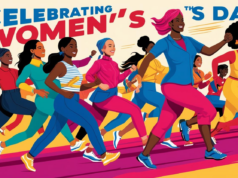IDENTITY BEYOND NAME
We all know that even if we call a rose by any other name, it would smell as sweet, but on the other hand the influence & value of name cannot be challenged. Be it prose, poetry, history or our present socio- religious architecture; we are all recognized by our names with last name denoting our lineage.
When names matter to us so much so that we feel offended when anyone misspells our name or even inadvertently mispronounce our name; how can one expect women to quickly change their last names after marriage?
Recently, the Indian Prime Minister Mr. Narender Modi said that “Women don’t have to submit marriage/divorce certificate for passport. It will be their discretion to use father/mother’s name in passport.” This announcement spurred a debate all across the online and offline media fetching in vivid opinions on this practice of woman adopting the last name of her husband’s family. We at Women-ID thought to dig it further to know how people of different countries, culture and religion accepted and adhered to this convention without any dissent in the hundreds of years gone by.
Traditionally, women used to live in their husbands’ home after their marriage. The men used to go out of home to work and earn bread for the family while women used to stay back as homemakers. Hence, social interaction was prominently conducted by the men and women were recognized through their husbands and their family members. People could relate the change in the last name to know that a woman has got married to a certain family.
People often consider it as a religious ritual but the convention of a wife taking her husband’s last name at marriage is more of a cultural practice. It is still a common tradition for a wife to change her last name to that of her husband in various cultures. While majority of married women in the West follow the tradition, but there is nothing immoral about a wife keeping her maiden name or opting for a hyphenated hybrid.
In some parts of the world, women changed their last names after marriage following the legal norms because the erstwhile law considered the wedded couple as “one person” and the husband, whose identity superseded the wife’s -was the sole person who could go to the law, vote, own assets etc. Many places, this ritual of name change was practiced to establish the headship of the man & reinforcing patriarchy while in some other cultures it was practiced religiously to make the marriages more binding and to establish that wedding is the union of two people into one.
Things have changed; Women today are not just the homemakers but they are working hand in hand with men in all areas of life. She is well placed and well poised to earn, learn and live independently. Hence, the convention holds no relevance in modern world and it is a fundamental right for every person whether men or women to use any name they want. Changing your last name post marriage is purely an individual choice.
Regardless of whether women do or don’t change their last name, it is so vexing for anyone to let go a piece of inherent title and native lineage. However the bigger question is not about the name, it is about her identity. Assuming her husband’s last name does not necessarily obliterate the woman’s identity until she agrees to exist only as “wife of”. We are all known in relation to our parents, grandparents, siblings, and spouse is no exception but the conflict arises when we are known only in relation to someone and we lose our own Individual Distinctiveness- which is our real Identity.
To change your last name following a wedding is not necessarily anti-feminist, but in no case a woman should be forced to take her husband’s surname, and it shouldn’t be an issue if she doesn’t.
Marriage is a conscious & willful union that fosters an egalitarian partnership, where both parties have complete freedom to pursue their ideologies and identities. Your name should reflect the individual distinctiveness that is unique to you. Retaining your identity is more important than the surname, do not let your uniqueness fade away. If you look at the positive side, this commitment could be more empowering for both of you in leading a mutually supporting, collaborative life where all hopes, desires, gains, pains, dreams, & aspirations are mutual and you not only share the surname but you also decide to share the destinies.




















